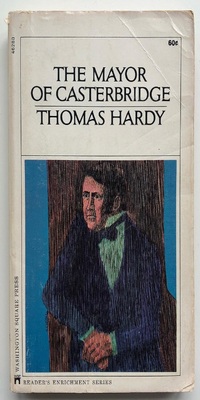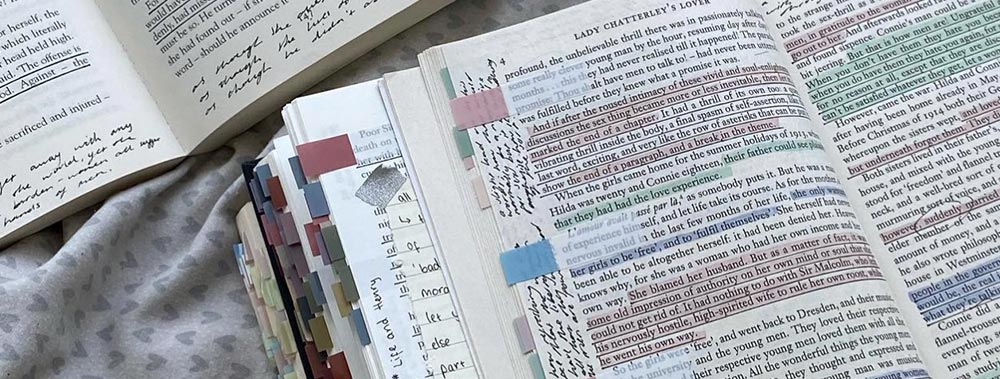The Mayor of Casterbridge: Summary, Plot, Characters, Literary Analysis & More
“The Mayor of Casterbridge” is a classic novel by Thomas Hardy, first published in 1886. Hardy’s novel stands as one of his enduring critical and popular triumphs, set against the backdrop of fictional rural England.
“The Mayor of Casterbridge” intricately weaves the tale of Michael Henchard, a man whose impulsive decisions lead to a series of life-altering events.
From selling his wife, Susan, and baby daughter, Elizabeth Jane, at a country fair to his subsequent rise to become the mayor of Casterbridge, the story explores themes of fate, redemption, and the consequences of one’s past actions.

"The Mayor of Casterbridge" intricately weaves the tale of Michael Henchard, a man whose impulsive decisions lead to a series of life-altering events.
Table of Contents
Summary The Plot Characters Key Themes Genres Language used Literary devices Summing upThe Plot
“The Mayor of Casterbridge” by Thomas Hardy unfolds a gripping tale set in the fictional town of Casterbridge. Michael Henchard, in a fit of drunken impulsivity, sells his wife Susan and their daughter Elizabeth Jane to a passing sailor, Richard Newson.
Years later, Henchard, now the mayor, encounters Susan’s return and seeks to make amends. However, his lies and past transgressions haunt him.
Tragedy strikes as Susan dies, leaving Henchard to care for their grown daughter. The novel delves into Henchard’s journey of redemption and his complex relationships with Donald Farfrae, the townsfolk, and his newfound family.
Characters
The characters in “The Mayor of Casterbridge” play pivotal roles in shaping the story’s themes of redemption, fate, and human nature.
Michael Henchard’s impulsive actions drive the narrative, while Donald Farfrae’s arrival challenges the status quo, leading to a power struggle in the town.
Michael Henchard
Henchard’s character exemplifies the consequences of impulsive decisions and the possibility of redemption.
His journey from selling his family to becoming the mayor showcases the complexities of human nature.
Donald Farfrae
Farfrae’s arrival in Casterbridge as a skilled and ambitious young man disrupts the town’s dynamics. His contrasting character to Henchard brings to light themes of competition and change in the story.
Elizabeth Jane
Elizabeth Jane, initially portrayed as an innocent and dutiful character, returns to Casterbridge, where her resilience and unwavering sense of morality shine amidst the town’s complexities.
Richard Newson
Richard Newson, the passing sailor who purchases Susan and Elizabeth Jane, represents the catalyst for the novel’s early events.
Key Themes
“The Mayor of Casterbridge” explores themes of fate, redemption, and the consequences of one’s actions, offering a profound commentary on human nature and societal norms.
Fate
The novel delves into the idea that our destinies are shaped by our past choices, as Michael Henchard grapples with the repercussions of his impulsive decisions.
Redemption
Henchard’s journey toward redemption is a central theme, showcasing the potential for individuals to seek forgiveness and transform their lives, even after making grave mistakes.
Consequences of Actions
The narrative highlights how one’s actions, like Henchard’s sale of his family, can have far-reaching and enduring effects, driving home the notion that every choice matters.
Genres in The Mayor of Casterbridge
The novel encompasses a blend of literary genres, providing readers with a multifaceted reading experience that combines elements of drama, tragedy, and historical fiction.
Drama
The novel is a compelling drama that explores the intricate relationships, conflicts, and moral dilemmas of its characters, particularly Michael Henchard, as they navigate the challenges of their lives in Casterbridge.
Tragedy
Thomas Hardy masterfully crafts a tragic narrative in which the characters’ flaws and fateful decisions lead to heart-wrenching consequences, resulting in a somber exploration of human nature and the inexorable workings of destiny.
Historical Fiction
Set against the backdrop of 19th-century rural England, the novel meticulously recreates the historical and societal context of its time, immersing readers in a bygone era while addressing timeless themes of human behavior and society.
Language used in The Mayor of Casterbridge
Thomas Hardy’s writing style in “The Mayor of Casterbridge” is characterized by its vivid and evocative language that immerses readers in the story’s atmosphere.
He skillfully employs descriptive prose to convey the nuances of the characters’ emotions and the rural landscape.
The language captures the complexities of human nature, particularly when Henchard lies and later when he realizes the profound consequences of his actions.
This blend of descriptive and introspective language creates a rich narrative tapestry, allowing readers to empathize with the character’s inner turmoil and the evolving atmosphere of the story.
Literary devices in The Mayor of Casterbridge
The author skillfully employs various literary devices to enhance the narrative. Henchard’s realization serves as a powerful example of foreshadowing, building tension as he confronts the consequences of his past actions.
Elizabeth Jane’s return and her eventual decision to marry Henchard contribute to the novel’s use of dramatic irony, as readers are aware of hidden truths that the characters are not.
These literary devices add depth to the story, engaging readers and heightening the emotional impact of the unfolding events in the plot.
Similes
Similes in “The Mayor of Casterbridge” by Thomas Hardy help paint vivid mental images for readers.
When Henchard realizes the extent of his mistakes, the text may describe his realization as being “like a bolt of lightning,” conveying the suddenness and intensity of his understanding.
Elizabeth Jane’s return to Henchard’s life may be compared to “a long-lost melody resurfacing,” evoking the nostalgia and emotional impact of her reappearance.
These similes enhance reader engagement by adding depth and emotion to key moments in the story.
Metaphors
Metaphors in the novel provide a rich layer of meaning. Henchard’s realization acts as a metaphorical turning point, akin to the “dawning of a new day,” symbolizing hope and change.
Elizabeth Jane’s return metaphorically breathes life into Henchard’s existence, like a “wilted flower rejuvenated by rain.”
These metaphors offer readers deeper insights into character transformations and plot developments, allowing them to connect on a more profound level with the narrative’s emotional and thematic complexities.
Analogies
Analogies in “The Mayor of Casterbridge” by Thomas Hardy serve as powerful tools for readers to grasp complex ideas. When Lucetta asks Henchard for his assistance, it’s akin to “making a deal with the devil,” illustrating the moral dilemma she faces.
Henchard’s learning can be likened to “a lightbulb moment,” helping readers understand his newfound awareness. These analogies simplify intricate emotional and ethical concepts, making them more relatable and understandable for the audience.
Imagery
The use of imagery in the novel enriches the reader’s experience by creating vivid sensory impressions. Lucetta’s request, for instance, is described in such detail that readers can almost feel the weight of her decision.
Elizabeth Jane’s wedding day is painted with imagery that conveys the joy and anticipation in the air, immersing the reader in the celebratory atmosphere.
Lucetta Templeman’s appearances are vividly portrayed, allowing readers to visualize her presence. Such imagery deepens the connection between readers and the story, making it more immersive and engaging.
Symbolism
Symbolism in “The Mayor of Casterbridge” by Thomas Hardy is prevalent, with elements like Lucetta’s marriage to Henchard symbolizing the consequences of deceit and passion. When Susan falls ill it signifies the fragility of relationships and the toll of secrets.
When Henchard learns the death of his daughter about represents personal growth and the evolution of his character, while Lucetta Templeman has a very interesting character that symbolizes the allure and danger of societal expectations and personal desires.
Personification
Personification in “The Mayor of Casterbridge” brings depth to the characters and setting. For example, when Elizabeth Jane accepts Henchard’s offer, her decision is portrayed as the town itself welcoming a long-lost resident, infusing the scene with a sense of belonging.
The town of Casterbridge is personified as a silent observer, echoing the emotions of its inhabitants, making it a dynamic backdrop to their lives.
Hyperbole
Hyperbole is used effectively by Hardy to emphasize dramatic moments. When Henchard loses his business it amplifies the magnitude of his misfortunes.
Such exaggerations intensify the narrative’s emotional impact, underscoring the characters’ struggles and adding a layer of poignancy to their experiences.
Irony
Irony in “The Mayor of Casterbridge” is multifaceted, with situational irony evident when Henchard attempts to connect with those from his past, only to encounter further misunderstandings and complications.
Dramatic irony is prominent as readers are privy to secrets that characters remain oblivious to, such as Elizabeth Jane’s true parentage, creating suspense and tension.
The tragic irony of Henchard’s life and choices ultimately underscores the novel’s themes of fate and the unintended consequences of one’s actions.
Juxtaposition
Juxtaposition is skillfully employed in the book to highlight stark contrasts.
Henchard’s door serves as a symbol of both opportunity and isolation, juxtaposing his desire for connection with his self-imposed isolation.
The contrast between Susan’s death and the arrival of the second Elizabeth Jane emphasizes the cyclical nature of life and death.
Henchard’s character itself is a juxtaposition of ambition and downfall, illustrating the complex interplay of character traits and circumstances in the narrative.
Paradox
The paradox arises in “The Mayor of Casterbridge” when Henchard takes drastic actions to control his destiny but ultimately finds himself trapped by his own choices, highlighting the paradoxical nature of free will and fate.
Additionally, Lucetta’s death, following a series of deceptions and betrayals, reveals the paradox of the unpredictability of life amidst carefully constructed plans.
Allusion
Allusion can be seen in the character of Joshua Jopp, a reference to a biblical figure, Joshua. Jopp’s role as a religious and moral figure underscores the theme of morality and redemption in the story, adding depth to the narrative.
The mention of an epileptic seizure alludes to the medical knowledge of the time, shedding light on the era’s understanding of health and illness.
Repetition
Repetition serves to underscore key themes and emotions in the book. The repetition of Henchard’s departures and returns highlights the cyclical nature of his life and his struggle with change.
The repetition of Farfrae’s assistance to Henchard demonstrates the theme of friendship and the complexity of their relationship.
These repetitions create a sense of rhythm and resonance, deepening the impact of the novel’s themes and character dynamics.
The Use of Dialogue
Dialogue in “The Mayor of Casterbridge” is a powerful tool used by Thomas Hardy to convey character traits, themes, and narrative tension.
Through conversations, readers gain insight into the characters’ motivations, desires, and moral dilemmas.
The dialogue also serves as a means to explore themes such as redemption, betrayal, and social class, allowing readers to connect with the characters on a deeper level and heightening the narrative tension as conflicts unfold.
Rhetorical Devices
In “The Mayor of Casterbridge” by Thomas Hardy, rhetorical devices, including rhetorical questions, are occasionally employed to enhance the persuasive effect of the narrative.
For instance, when the characters grapple with moral dilemmas and confront the consequences of their actions, rhetorical questions are used to underscore the gravity of their decisions and provoke contemplation.
These devices serve to engage the reader on a deeper level, compelling them to reflect on the characters’ choices and the overarching themes of fate, redemption, and human frailty that permeate the novel.
The Mayor of Casterbridge: FAQs
In this section, we provide answers to common questions relating to this literary masterpiece.
What is the summary of The Mayor of Casterbridge?
“The Mayor of Casterbridge” is a novel by Thomas Hardy that tells the story of Michael Henchard, who impulsively sells his wife and daughter at a fair, setting off a series of tragic events. He becomes the mayor but faces the consequences of his past actions.
What is the message of The Mayor of Casterbridge?
The novel explores themes of fate, redemption, and the lasting impact of one’s choices. It serves as a cautionary tale about the consequences of impulsive decisions and the possibility of personal growth and redemption.
What happens to Henchard at the end of the novel?
At the end of the novel, Henchard tragically dies alone and penniless, having lost his reputation and wealth. His story serves as a poignant reminder of the destructive power of pride and impulsiveness.
What happens when Henchard resolves to marry Lucetta?
When Henchard resolves to marry Lucetta, their relationship becomes a central element of the novel’s plot. Their marriage is marked by secrecy and scandal, leading to misunderstandings and conflicts with other characters.
Does The Mayor of Casterbridge have a happy ending?
No, the novel does not have a conventionally happy ending. While some characters find happiness, Henchard’s life is marked by tragedy and personal sacrifice, and the overall tone is one of realism and moral reflection.
Summing up: The Mayor of Casterbridge: Summary, Plot & More
As you can see from this “The Mayor of Casterbridge” summary, Thomas Hardy leaves a profound impact through its exploration of human nature, the consequences of one’s actions, and the inexorable force of fate.
The novel’s intricate characters, led by the flawed and tragic Michael Henchard, showcase the complexities of morality and redemption. The story’s themes resonate with readers as they grapple with the characters’ moral dilemmas, the fragility of reputation, and the transformative power of time.
Henchard’s marriage to Farfrae, his ultimate act of self-sacrifice, highlights the novel’s exploration of personal growth and the pursuit of redemption.
This classic work’s enduring appeal lies in its timeless themes, rich character development, and Thomas Hardy’s masterful storytelling, making it a compelling and thought-provoking read for generations to come.
Other Notable Works by Thomas Hardy
If you are interested in “The Mayor of Casterbridge”, you may be interested in other works by Thomas Hardy including:
- “Tess of the d’Urbervilles” – A powerful novel exploring the tragic fate of Tess Durbeyfield, a young woman whose life is marked by social injustice and personal struggles.
- “Far from the Madding Crowd” – This novel follows the romantic entanglements of Bathsheba Everdene and the three men who pursue her in the rural English countryside.
- “Jude the Obscure” – A thought-provoking and controversial work that delves into the challenges faced by Jude Fawley as he pursues education and love in a society marked by societal norms.
- “The Return of the Native” – Set in the fictional Egdon Heath, this novel delves into the lives and loves of its characters against the backdrop of the untamed heath.
- “Under the Greenwood Tree” – A charming pastoral novel that explores the lives of the inhabitants of the fictional village of Mellstock, including a group of church musicians.
These works by Thomas Hardy offer a range of themes, from social issues to love and tragedy, all told with his distinctive style and keen insight into human nature.







